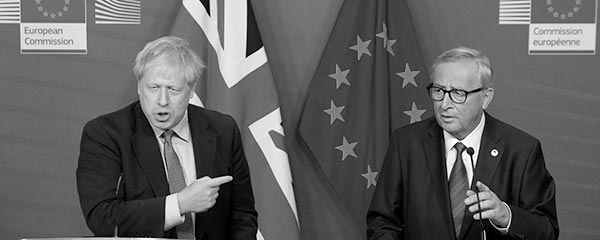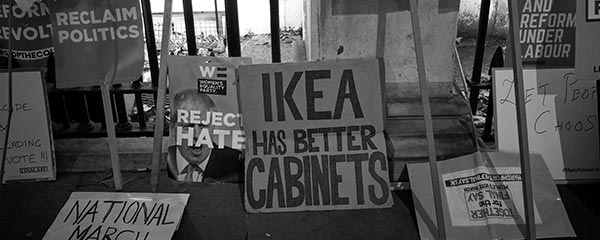Since Brexit first became a possibility in 2016, supporters of the United Kingdom's divorce from the European Union have used the phrase Singapore-on-Thames to describe what the U.K.'s trade could be like after its departure on Friday. In essence, they see the U.K. becoming a low-tax, lightly regulated economy, positioned only miles offshore from the more tightly regulated eurozone.
Singapore is often portrayed as a deregulated paradise, but would the similarities stop there -- and how do residents of each country feel about their economy and government? ���۴�ýturned its analytical lens on residents of the U.K. and Singapore to find out.
Britons Far Less Certain About Their Economy
While Singaporeans are firmly in the camp of believing their local economy is getting better rather than getting worse, Britons have been fairly evenly divided on the subject for the past few years. However, Britons are currently about twice as likely to see the situation as getting worse (39%) as their Singaporean counterparts (20%), with many Britons still likely fearing the unknown of a no-deal Brexit and its consequences on the job market.
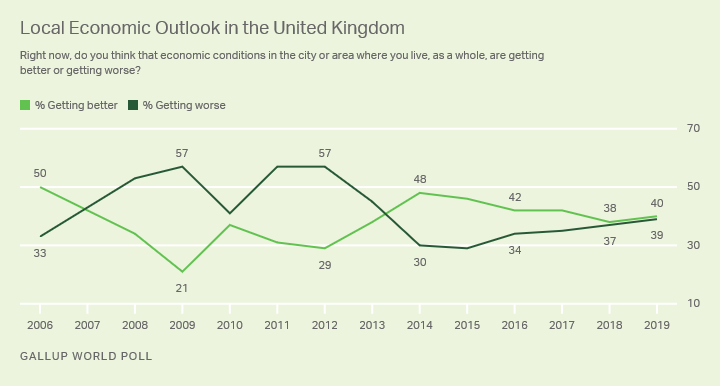
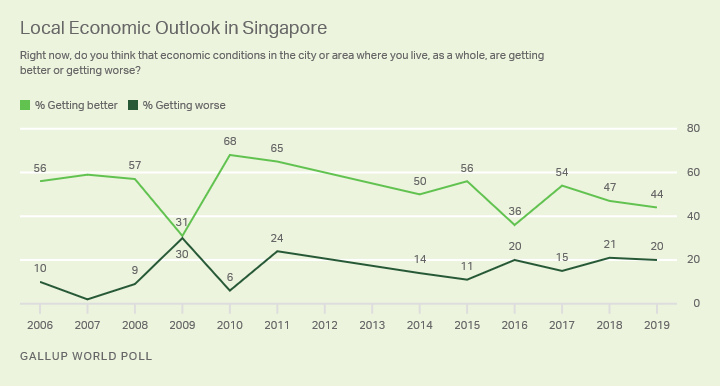
Singaporeans are neither as optimistic nor as pessimistic about their economic forecast as they have been over more than a decade of ���۴�ýsurveys there. If anything, Singaporeans have grown slightly less optimistic in recent years, as GDP grew by only 0.7% in 2019 -- its slowest pace since 2009.
Singapore relies heavily on exports, and it has acutely felt the pressures of the U.S.-China trade war. Policymakers were forced to lower their forecast for 2020 to a range of 0.5% to 1%. This consequence of an import-export economy will likely be a factor in British Prime Minister Boris Johnson's government's decision-making when considering a Singapore-on-Thames-type model.
Singaporeans Confident in Their Government; Britons, Not So Much
A resounding majority of Singaporeans (93%) express confidence in their national government, while 34% of Britons say they are confident in theirs. In fact, almost twice as many Britons (64%) say they are not confident in their national government.
Singapore's government and economy are inextricably linked, somewhat exploding the myth of a deregulated economy. The country's rebound after the 2009 financial crash can be attributed in part to the strong and ever-present bureaucracy that has controlling stakes in most of the country's largest companies. This, coupled with meticulous economic planning by technocratic officials, allows the Singaporean government to manipulate its market to ensure growth remains on track.
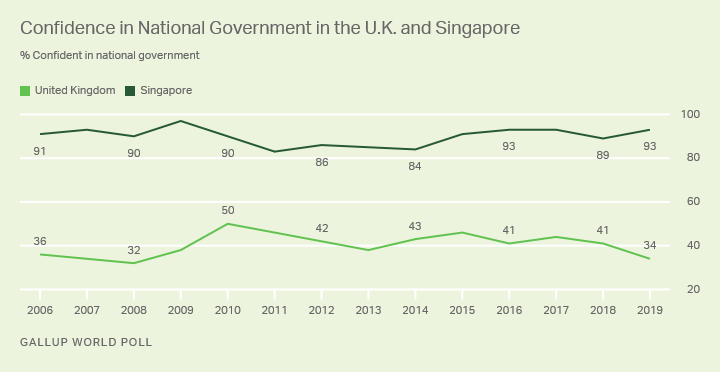
This would be much more difficult to achieve in the U.K., given the lack of public ownership and considerably more limited powers of Parliament. With about a third of Britons approving of their government, it seems unlikely that the public would ever vote to give this much control back to it. The Labour Party recently suffered its worst defeat in a general election since 1935 -- and its fourth consecutive loss -- standing on a manifesto that called for more government involvement and ownership.
What's more, in the U.K., 41% of residents believe that corruption is widespread throughout the government; in Singapore, 4% share the same sentiment. This overwhelming trust may be part of the reason for Singapore's initial success but a limiting factor for a U.K. government seeking to deliver on any Singapore-on-Thames plans it might have.
Bottom Line
As Johnson hammers out a deal with the EU around exit terms, it is becoming clearer that any significant deviation away from the eurozone regulations would result in harsher terms for the Brexit deal, possibly nullifying any boost that lax regulations might offer to the British economy, and turning the prospect of Britain becoming an offshore gateway to Europe a distant reality.



